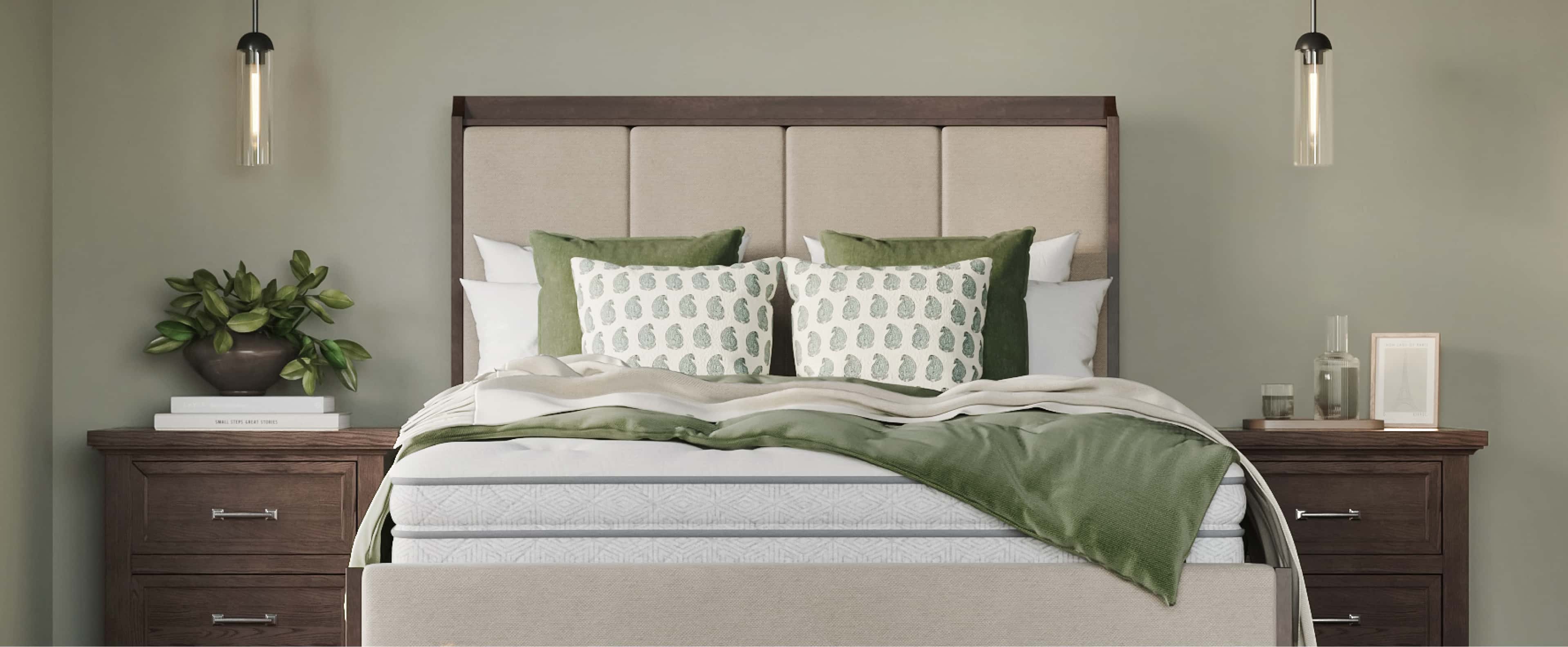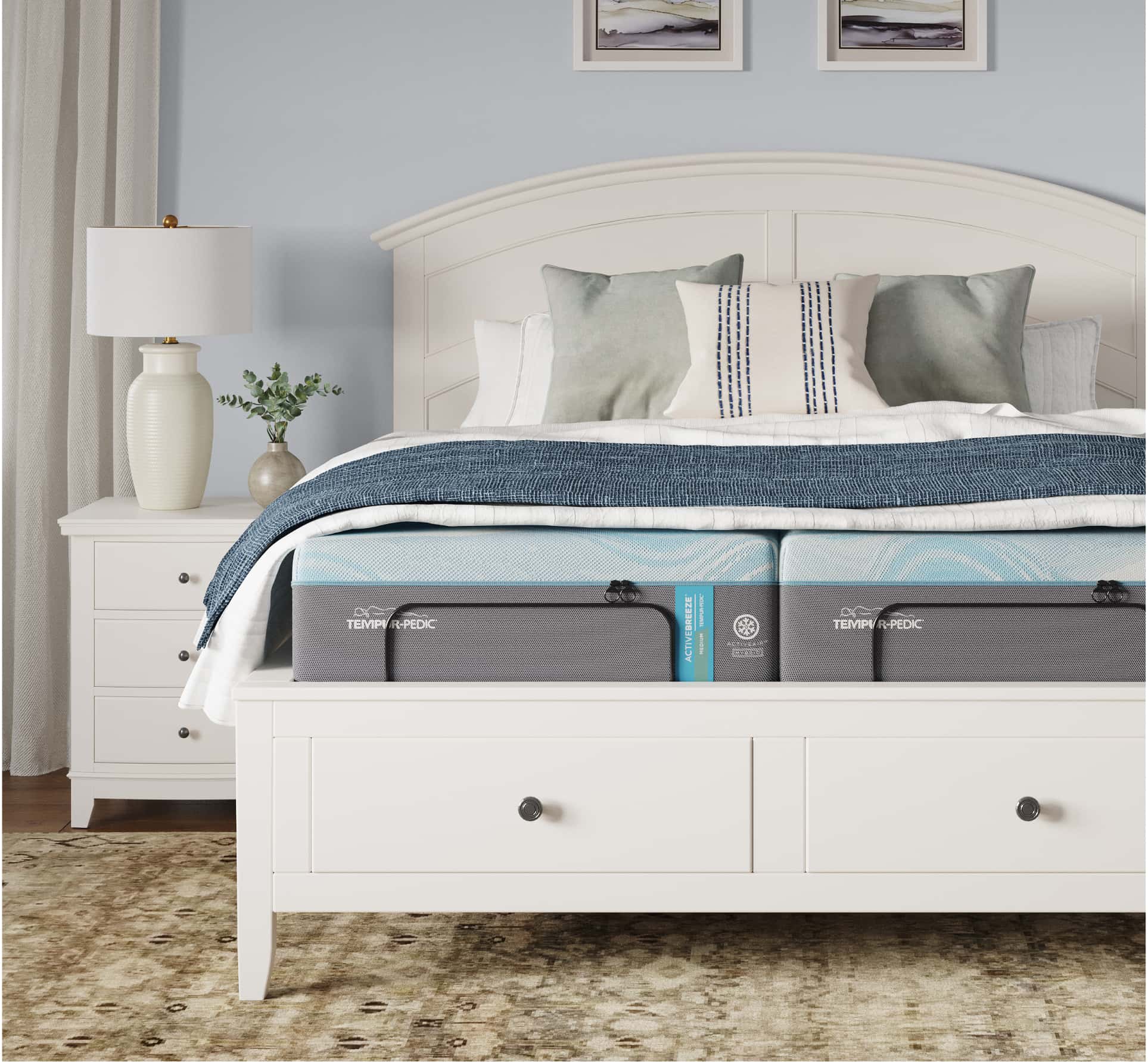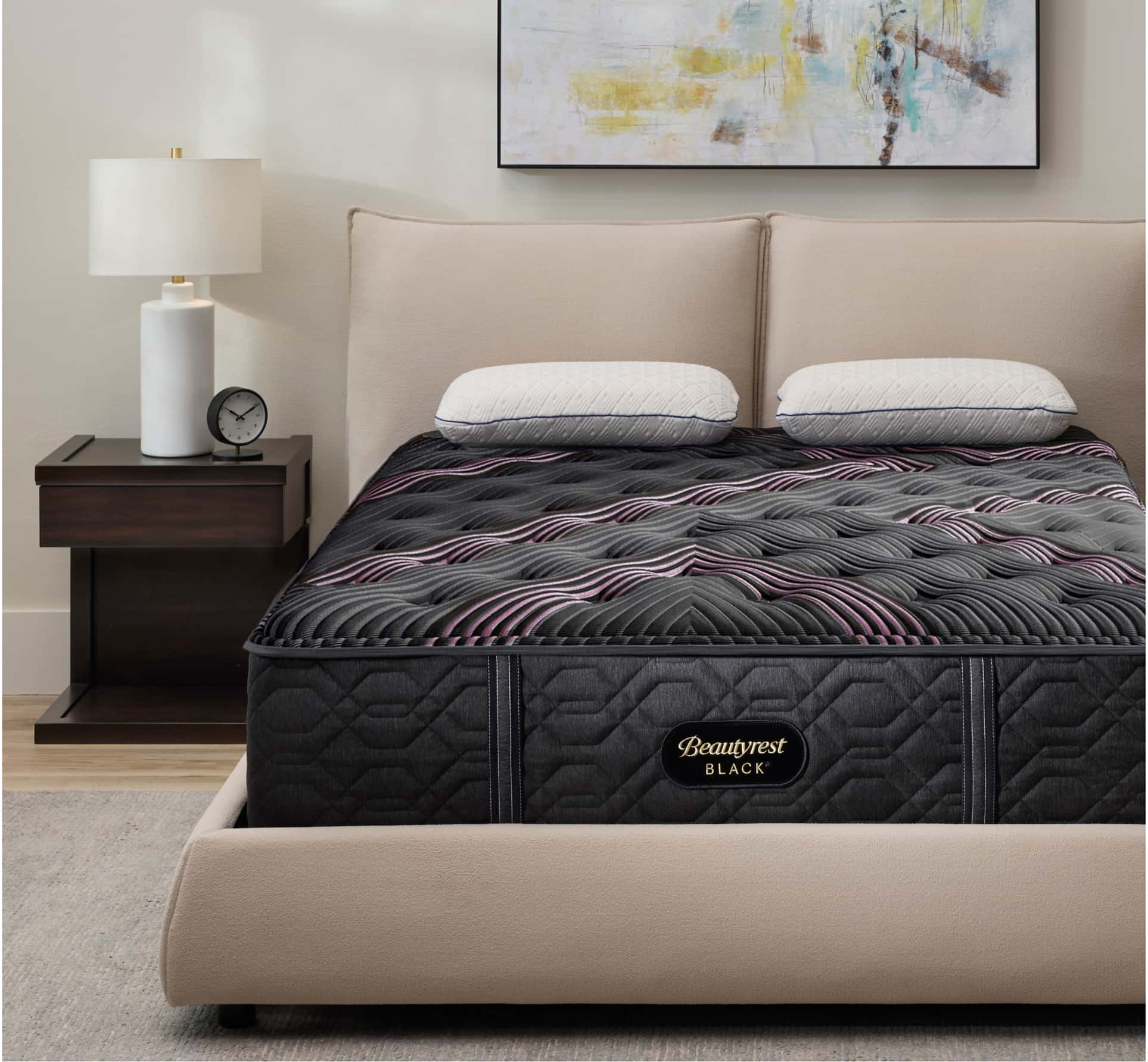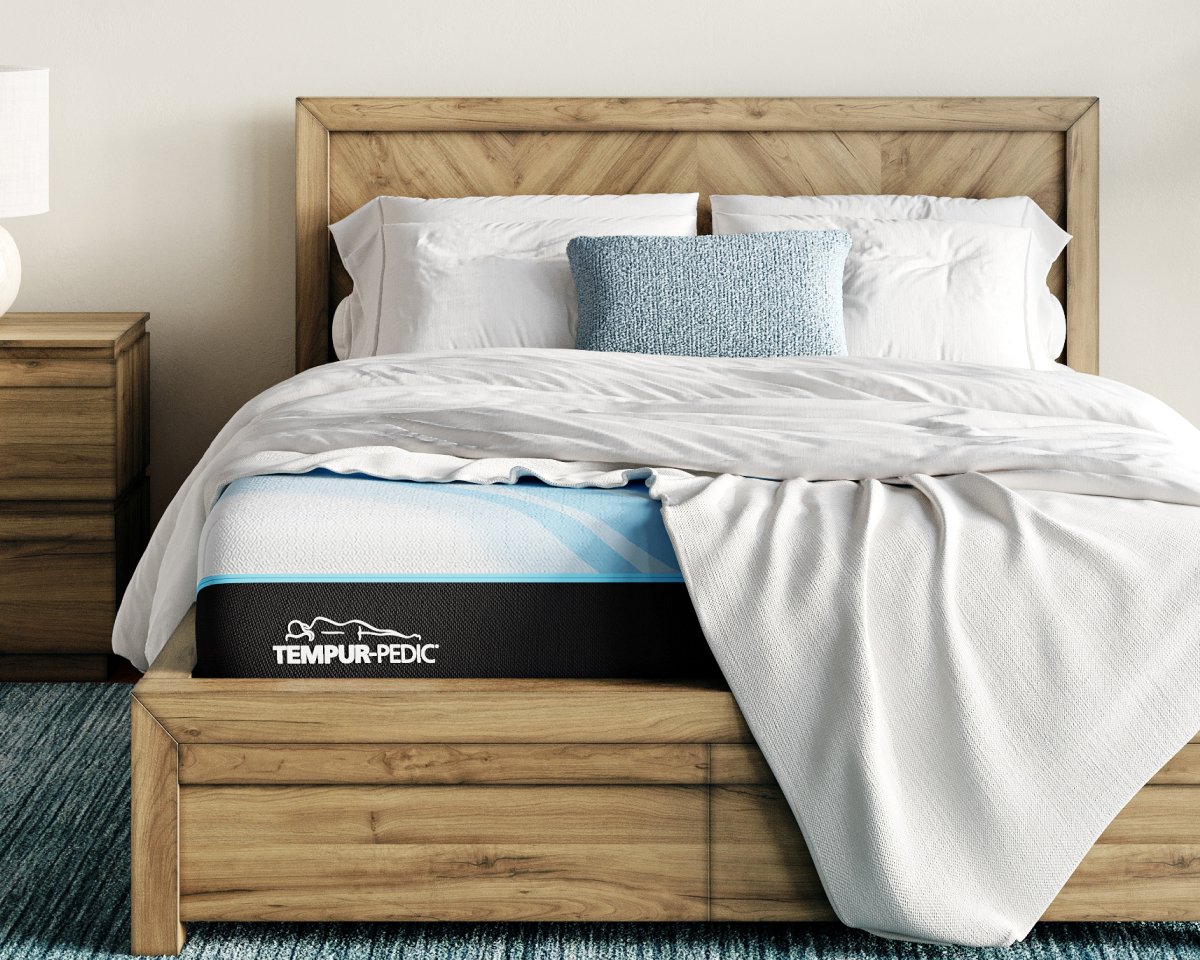
How Often Should You Replace Your Mattress?
A quality mattress is more than an investment in your sleep — it’s a commitment to your overall wellness. Better sleep can be life-changing. Studies have determined it can improve brain performance and energy levels while lowering your risk for serious health problems.
Chronic poor sleep can impact your physical and mental well-being. If tossing and turning keeps you up at night, or you wake up with physical discomfort, it’s probably time to replace your mattress. Many factors affect a mattress's lifespan, including how often it's used and how it's cared for.
Know when it’s the right time to replace a mattress and learn simple tips to help you prolong the life of your current mattress.
What Factors Influence a Mattress’s Lifespan?

Mattresses do not come with an expiration date. The average mattress lifespan is 7-10 years, but you may have to swap in a new one sooner if you experience unwanted changes in your sleep pattern or the mattress itself. Age is only one factor that influences how long a mattress will last.
Mattress quality
The materials that make up your mattress can be a good predictor of its durability over time. The quality of the springs or the memory foam plays a large factor. If you buy a lesser-quality or discount mattress, don’t be surprised if it doesn’t last as long as a premium one from a respected brand. Do your homework before you buy. There are plenty of affordable mattress options that offer excellent support and comfort.
Frequency of use
A sporadically-used mattress will likely last longer than one that is slept on every night. Keep this in mind if you have a guest bedroom that is used infrequently. Your main beds will likely require a mattress swap-out more often since guest bedroom mattresses will maintain optimal support and comfort levels for longer.
Weight distribution
If you sleep in the same spot every night it can lead to uneven weight distribution and premature wear or sagging in specific parts of the mattress. Heavier individuals also tend to put more pressure on a mattress and cause it to lose support more quickly.
Personal preference
Some individuals are more sensitive to changes in mattress quality, while others may not notice a difference if the wear and tear isn’t visible. You know your body and your personal preferences the best. If you sense an unwanted alteration in your mattress, it’s probably time to get a new one.
Signs That It’s Time to Change Your Mattress
A Journal of Chiropractic Medicine study concluded that a new bedding system increases sleep quality and reduces back discomfort. It’s important to pay attention to the tell-tale signs that your mattress needs replacing.
Waking up with aches and pains
There may be no visible problems with your mattress, but if you’re waking up in pain or feeling like you didn’t get a good night’s sleep, it may be time for a replacement. Whether you have an inner spring, memory foam, or hybrid mattress, the material that makes up the mattress tends to lose its resiliency and shape over time. Most mattresses soften as they age, which can result in you waking up feeling sore or stiff.
Difficulty falling asleep
If a mattress has lost its shape or doesn’t provide adequate support, you may have trouble falling asleep or staying asleep. And if you know you’re uncomfortable in bed, that can make it more difficult to clear your mind and relax. Temperature regulation may also be a factor, as some mattresses retain heat and prevent you from getting a restful night’s sleep.
Visible wear and tear
These visual clues are the most tangible signs that a mattress has worn out its welcome:
- Rips or holes in the fabric or stitching
- Frayed edges
- Stains or odors
Any noticeable alteration to the mattress is a possible indicator that it should be replaced.
Also, be aware of any kind of discoloration beyond stains. This could indicate mold growth or internal problems with the mattress.
Sagging or lumps
Sagging or lumps are easy to spot and are a prime indicator that a mattress is no longer able to provide proper support. In fact, they may be the cause of restless nights or back pain.
Be on the lookout for deep indentations that do not go away well after you have gotten out of bed. This may indicate that the mattress isn’t properly conforming to your body.
Allergies
If your allergies have gone into overdrive, your mattress may be the reason. Over time, mattresses accumulate allergens such as dust mites, mold, and pet dander. These allergens can trigger allergies and other respiratory issues.
This is something to monitor even with guest bedroom mattresses. Even if it isn’t being slept on regularly, mattresses still collect allergens and bacteria.
Tips for Extending the Life of Your Mattress

Certain actions should be taken to help prolong the life of your mattress. It’s important you don’t wait until you notice something off — maintenance should be a priority from the moment you buy a new mattress.
Proper cleaning
Vacuum your mattress and upholstery to remove dust, dirt, and other allergens. Be sure to strip the bed and refresh your sheets regularly. Spot clean any mattress stains using a mild detergent and water. Read the manufacturer’s instructions before using cleaning products as you don’t want to cause further damage.
Use a mattress protector
A mattress protector acts as a barrier between your body and the mattress surface. It blocks certain spills and stains that a bedsheet can’t. Choose a breathable and waterproof protector that can be easily washed.
Rotate and flip your mattress
It’s recommended that you rotate and flip your mattress every few months — this goes for all mattresses in your home. Rotating and flipping can prevent sagging and help with weight distribution. If mattresses are one-sided (e.g., pillow top), you should still rotate without flipping.
Choose a protection plan
Life happens! Gain peace of mind with your mattress purchase knowing that it’s protected. Raymour & Flanigan’s Platinum Protection Plan provides five years of protection against household accidents, including food and drink stains, rips, burns, pet accidents, and more.
Invest in a Mattress That Lasts

Mattresses don’t last forever, but some last longer than others. You spend one-third of your life in bed — a high-quality mattress plays a major role in the quality of your sleep and your overall wellness. It’s an investment that should be taken seriously and will pay off if you find the perfect mattress for you! If possible, take an in-store comfort test before you buy. You’ll be able to work one-on-one with a sleep consultant and try out different mattress types to find the best fit for your comfort needs.
You also want to consider your preferred sleeping position. Are you a back sleeper, a side sleeper, or a stomach sleeper? The answer to this question will determine the type of mattress you should buy. For instance, a memory foam or hybrid mattress is recommended for side sleepers, while a firm or medium-firm innerspring mattress is ideal for back sleepers. Even if your mattress isn’t showing signs of aging, you could still benefit from a mattress change to better fit your sleep style. To find your perfect mattress match, take our quick mattress quiz.



